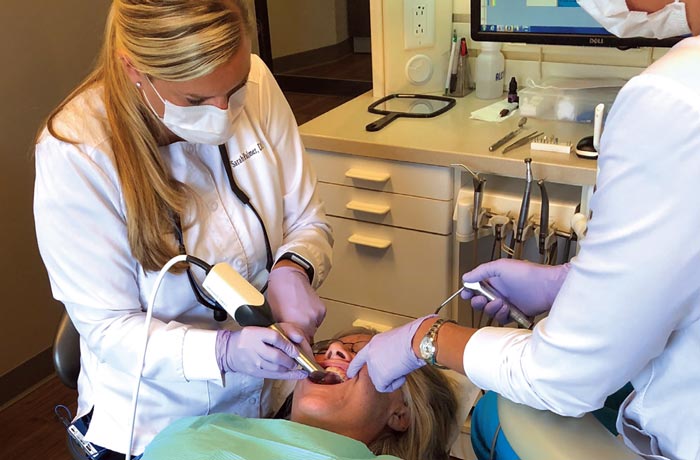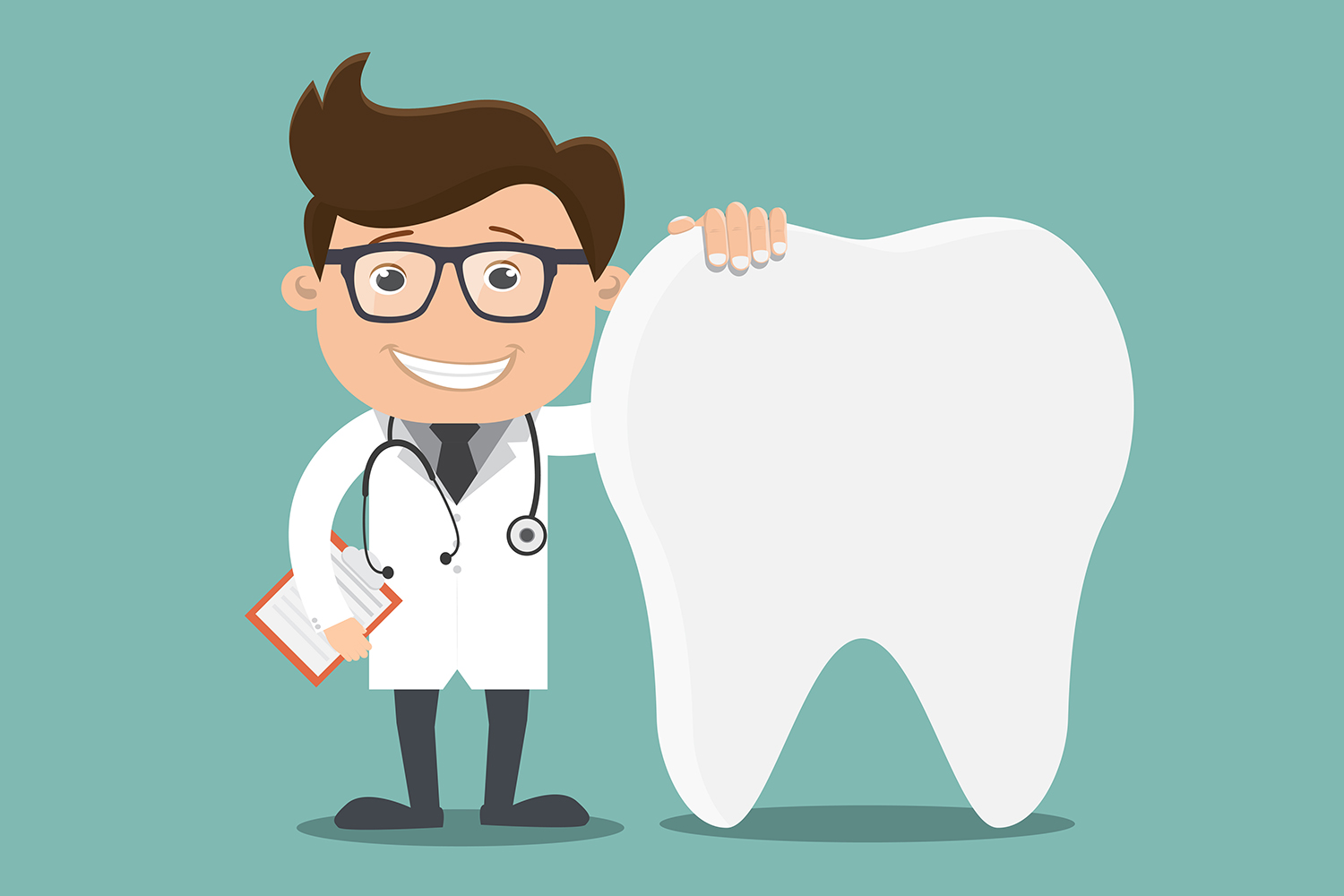Meet Your Pleasant Community Dentist Eugene OR and Their Solutions
Meet Your Pleasant Community Dentist Eugene OR and Their Solutions
Blog Article
A Guide to Typical Dental Conditions That Require a Dental expert's Treatment
Understanding the series of dental conditions that necessitate professional treatment is vital for preserving ideal dental wellness. Toothaches, for instance, can be symptomatic of extreme concerns such as tooth cavities, cracked teeth, or abscesses, each needing specific treatments like fillings or origin canals. Gum tissue disease, from the beginning of gingivitis to much more severe periodontitis, highlights the value of normal oral exams and cleanings. Influenced knowledge teeth and jaw problems can introduce considerable discomfort and complications. Making sure prompt brows through to the dental professional can alleviate these problems properly, yet exactly what are the treatments and indications entailed?
Toothaches
Toothaches are an usual dental condition that can range from moderate discomfort to extreme pain, usually suggesting a hidden problem that requires professional attention. This discomfort can originate from a selection of resources, consisting of tooth decays, cracked or fractured teeth, and dental abscesses. Each of these conditions postures considerable dangers if left untreated, potentially leading to extra serious issues.
Oral dental caries, also recognized as caries, are caused by the build-up of plaque that wears down tooth enamel, leading to holes or pits in the impacted teeth. Abscesses are unpleasant infections at the root of a tooth or between the gum tissue and a tooth, commonly resulting from serious decay or neglected cavities.
Reliable therapy of toothaches involves addressing the source. This may consist of fillings for dental caries, crowns for split teeth, or origin canals and anti-biotics for abscesses. Early intervention by a dental specialist can protect against more deterioration and ease discomfort, ensuring optimal dental health.
Gum Tissue Condition
Gum tissue condition, a widespread yet usually forgotten dental condition, manifests through inflammation and infection of the periodontals and supporting tissues. This condition mainly occurs in 2 phases: gingivitis and periodontitis. Gingivitis, the milder type, offers with symptoms such as red, inflamed gum tissues that may bleed easily throughout brushing or flossing. If left unattended, gingivitis can progress to periodontitis, an extra extreme kind characterized by the devastation of the sustaining bone and connective tissue, inevitably bring about missing teeth.
The primary source of periodontal condition is bacterial plaque, a sticky, colorless film that frequently creates on teeth. Poor oral health, smoking cigarettes, genetic proneness, and specific clinical problems, such as diabetes mellitus, can intensify the threat of developing periodontal condition. Routine dental examinations are important for early discovery and management of this condition.
Therapy for gum tissue disease ranges from professional oral cleansing and scaling to more sophisticated treatments like origin planing and gum surgery, relying on the extent. Maintaining great dental health practices, consisting of cleaning twice daily, flossing, and making use of an antiseptic mouth wash, can considerably reduce the threat of gum tissue illness and advertise much healthier gums.
Tooth Cavities
Dental caries, additionally referred to as tooth decays, are a common dental problem identified by the devastation of tooth enamel as a result of acid-producing microorganisms in the mouth. These microorganisms prosper on sugars and starches from food and beverages, creating acids that progressively deteriorate the enamel, resulting in dental caries development.
Early-stage cavities might disappoint signs and symptoms, but as they proceed, they can trigger toothache, level of sensitivity to cold or hot, noticeable holes or pits in the teeth, and discoloration. If left untreated, tooth cavities can permeate deeper layers of the tooth, potentially leading to severe pain, infection, and also tooth loss.
Protecting against dental caries entails a mix of excellent oral hygiene practices and nutritional practices. Regular brushing with fluoride tooth paste, flossing, and regular oral examinations are crucial. Dental practitioners may also suggest additional precautionary procedures, such as fluoride therapies and dental sealers, to secure teeth from degeneration.
Minor cavities can be resolved with oral fillings, which bring back the tooth's structure. More innovative instances might require crowns or even origin canal therapy if the degeneration has actually gotten to the tooth's pulp.

Impacted Knowledge Teeth
Impacted wisdom teeth are a widespread oral issue that happens when the 3rd molars, commonly referred to as wisdom teeth, stop working to totally emerge or straighten correctly within the mouth. This condition usually results from insufficient area in the jaw or an irregular development angle of the teeth. Influenced knowledge teeth can bring about a variety of problems, including pain, damage, and infection to adjacent teeth.
When wisdom teeth come to be impacted, they are usually partially emerged or continue to be completely under the periodontal line. This partial eruption can create a pathway for germs to get in the gum tissues, leading to infections that show up as swelling, discomfort, and also high temperature. Furthermore, affected wisdom teeth can exert pressure on bordering teeth, possibly causing crowding or shifting.
An extensive dental evaluation, usually including X-rays, is vital for diagnosing affected knowledge teeth. Therapy often includes surgical removal, carried out by a dental cosmetic surgeon. The procedure aims to minimize pain and protect against more issues, such as cysts or damage to bordering bone frameworks. Post-operative care is critical to guarantee proper recovery and minimize the danger of infection. Normal dental exams are a good idea to keep an eye on the condition and keep oral wellness.
Jaw Conditions
Jaw problems, collectively recognized as temporomandibular joint (TMJ) problems, include a series of conditions that influence the jaw original site joint and surrounding muscular tissues. These disorders can materialize via symptoms such as discomfort or inflammation in the jaw, difficulty chewing, a popping or clicking noise when closing the mouth or opening up, and also chronic migraines. TMJ problems can arise from different variables, consisting of arthritis, jaw injury, or habitual habits like teeth grinding or jaw clenching.
Medical diagnosis of TMJ conditions typically entails an extensive evaluation by a dental practitioner, consisting of a physical evaluation of the jaw, dental X-rays, and occasionally progressed imaging methods like MRI or CT scans to assess the joint's condition. Non-invasive methods such as physical treatment, oral splints, and medications aimed at reducing swelling and discomfort are commonly first-line treatments.
Early treatment by a dental professional is crucial to avoid the progression of TMJ disorders and to preserve general that site oral health. Patients experiencing relentless jaw pain or disorder should look for timely assessment and treatment.
Conclusion
Keeping dental health and wellness requires prompt specialist care to resolve usual dental conditions. Toothaches usually show underlying problems such as cavities, split teeth, or abscesses, calling for timely treatment. Gum tissue disease, from gingivitis to periodontitis, demands regular dental exams and cleansings to stop development. Influenced wisdom teeth and jaw problems also need expert focus to ease discomfort and avoid additional issues. Regular oral brows through are vital for identifying and treating these conditions, guaranteeing overall oral health and health.
Oral cavities, also understood as caries, are triggered by the build-up of plaque that erodes tooth enamel, leading to holes or company website pits in the impacted teeth. Abscesses are excruciating infections at the origin of a tooth or in between a tooth and the gum tissue, usually resulting from serious decay or untreated tooth cavities.

Furthermore, affected knowledge teeth can put in stress on surrounding teeth, potentially creating crowding or moving.
Report this page